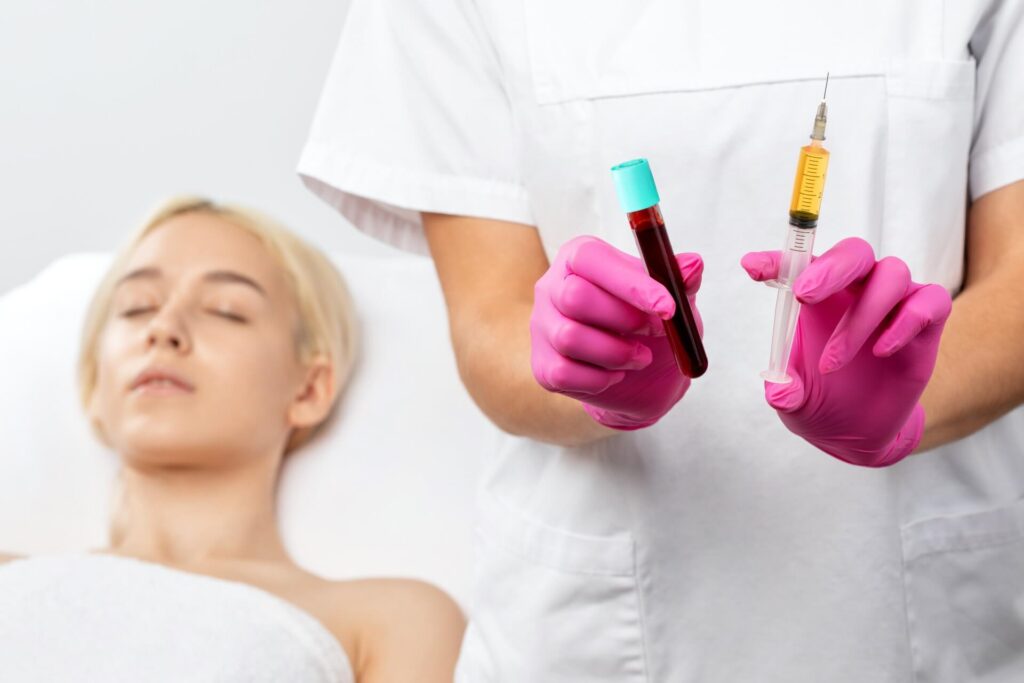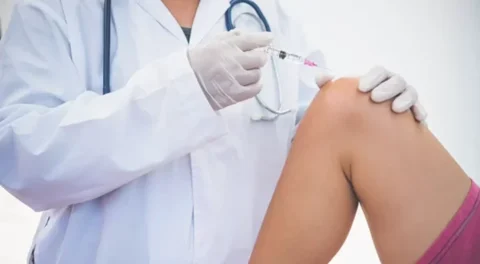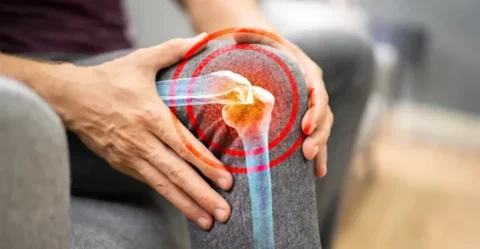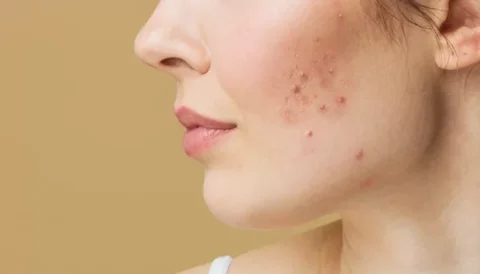Accutane is one of the most reliable treatments for cases of severe acne, though recently it’s seen a surge in use for milder forms of acne as an alternative for chemical peels or laser treatments. This has made its use with PRP treatments more common, especially considering that one of the adverse effects you can experience while using Accutane is hair loss.
However, can PRP treatments for hair loss work while you’re on acne treatments like Accutane? Most experts generally agree that there’s nothing too much in the way of adverse effects if you use these treatments together. However, because Accutane is a potent chemical, the overall effects of your PRP treatment may be affected as well.
Do Accutane and Hair Loss Affect Each Other?
Accutane is one of the many acne treatments that use isotretinoin, particularly for cases of chronic, cystic, and recalcitrant acne. It’s widely used for treating severe acne cases since the retinoids in the compound can help prevent acne scarring since the high levels of Vitamin A your skin is exposed to during the treatment process can reduce inflammation and bacteria.
Since bacteria is one of the most common culprits behind acne formation, Accutane has become a go-to treatment option for many people looking for effective aesthetic treatments without invasive procedures. It’s been touted as a successful treatment regardless of the person’s skin type or skin color, which is an issue that other treatments like laser therapy often have trouble with.
However, studies have also shown that a small percentage of people who use Accutane for acne can experience hair thinning or hair loss. While the effects of this resolve by themselves once the patient stops taking the drug, many people who are also at risk for conditions like male or female pattern hair loss may be impacted severely by these effects.
Fortunately, hair loss arising from Accutane use isn’t one of the common side effects of this treatment option. If you get your treatments done at a clinical practice with expert oversight, you’re more likely to avoid this side effect and many others like allergic reactions and dry skin, especially after your body gets used to the product after your initial treatment.
Why PRP Is Used With Accutane Treatments

But for patients who want to keep their hair during the treatment process, cosmetic procedures like PRP injection treatment are the best possible solution. While it’s not the only option, there are a few reasons why PRP outshines other hair loss treatments for people using Accutane:
1) It’s Minimally Invasive
One of the drawbacks of strong acne treatments like Accutane is that the patient’s skin can’t really handle additional stressors or other compounds since it may leave acne scarring or cause other complications. PRP injections treatments don’t require much during application aside from a few injections to the treated area.
Given that PRP injections are administered straight to the scalp, there’s no danger of experiencing adverse side effects from the treatment like the ones you may risk with topical applications. PRP injections boost the body’s wound healing and cell repair mechanisms, which don’t interfere with acne scar treatment and allow users to regain their normal skin without putting their bodies under strain.
2) Requires No Downtime or Aftercare
Aside from the usual procedures to follow after getting an injection, PRP treatments require no downtime after the cosmetic procedure is done, and have minimal potential side effects. Because of its high biocompatibility with the patient, your body is less likely to reject PRP injections and can absorb them efficiently, allowing them to work at the same time Accutane does.
No aftercare also means your skin doesn’t get put under more strain than it’s already experiencing with Accutane treatment. As previously mentioned, normal skin already experiences plenty of skin irritation from strong chemicals like Accutane, even if they are meant to relieve severe acne. PRP working with the treatment only gives your body an easier time managing itself.
3) Easy to Integrate
Patients who are on Accutane need to be monitored by their doctors and dermatologists to make sure that no adverse event happens while they’re taking the drug. The potency of Accutane makes it an effective acne treatment, but it also makes it more tricky to integrate into a treatment plan since its effects can drastically affect your skin.
In comparison, PRP injections only require a blood sample, some processing, and then systemic treatment to work – especially for hair loss. As long as the patient is cleared for platelet-rich plasma treatment with no pre-existing conditions, they can enjoy the effects of PRP treatment without having to worry about integrating it into an acne treatment plan.
Interaction Between PRP Treatments and Accutane
PRP treatments are not a new development: they’ve been heavily used in sports medicine and other degenerative medical conditions as a way to improve your quality of life. However, their effects on cosmetic concerns are less understood – which is why standard protocol dictates that they be considered as an exploratory treatment rather than a first-line therapy for hair loss.
This gets complicated when Accutane is brought into the mix because retinoids (especially ones like isotretinoin) can decrease platelet volume and platelet function in high concentrations. Given the consistent treatments needed to make sure the results of both Accutane and PRP injections work, These two compounds can interfere with each other’s effects.
There hasn’t been any evidence pointing toward PRP treatments making Accutane less effective, but medical opinion suggests that high or consistent levels of Accutane in the body can make the results of PRP injections less effective. Not only will this affect the results of hair growth, but it can also make hair thinning much more likely even with consistent PRP treatments.
This doesn’t mean that PRP therapy for hair loss will never work if you’re going through Accutane – but it does suggest that your results won’t be as good as other people who are taking it without the drug. At the very least, PRP injections can help keep the hair loss caused by Accutane as a side effect at bay, though it’s important to remember that this side effect doesn’t happen to everyone.
PRP Treatments and Other Hair Regrowth Products
If hair loss has become a concern for you and you’re on Accutane, the first thing to do is to get yourself checked by a dermatologist or a similar cosmetic expert. Given that Accutane’s common side effects don’t really include hair loss, there’s a possibility that any hair loss you experience while on Accutane can be caused by something else.
Once you’ve managed to get a diagnosis, it’s also a good idea to start looking around for substitutes for PRP treatment. There are several methods that you can look into for dealing with hair loss, including but not limited to:
- Topical minoxidil
- Hair transplantation
- Lifestyle and dietary changes
- LED light therapy
- Growth factor products
- Collagen stimulators
- Hyaluronic acid supplements
Out of these treatments, topical minoxidil (also known by brand names like Rogaine) can be the easiest treatment that you can safely integrate with your Accutane treatments. While it is a topical application, the effects of minoxidil on your scalp don’t get in the way of the effects of Accutane on your face. Medical studies have also shown that these two treatments work well together, especially on certain types of hair loss like alopecia areata.
Is PRP Treatment The Best Option?

Given the variety of different hair regrowth treatments that you can use with Accutane, is there any merit to using PRP treatment as your primary method of dealing with hair loss? There’s no clear answer to this question, simply because the effects of PRP treatment on hair loss in general still need more study.
While previous applications have shown a favorable response when using PRP treatment for hair loss, platelet-rich plasma treatments should always be considered as an alternative treatment for hair loss, or something that you can combine with other treatments to get a better result. Since these treatments are considered experimental, a complete response isn’t really guaranteed for anyone.
One of the reasons why this is the case is because PRP treatments rely on the patient’s own blood sample to work – which means that if there’s something wrong with the patient’s platelet count or they have other pre-existing conditions, the results from the PRP injection will vary greatly. Adding this to the strong effects of Accutane on the skin means the effects of PRP therapy on thinning hair will always vary between patients.
Another is the differences when it comes to PRP preparation between providers. While the core processes for extracting, processing, and administering PRP injections are the same, some methods of preparation can have additives or other compounds which can alter the outcome of the treatment. And because PRP preparations don’t have a clearly defined standard, this means that your PRP provider will play a significant role in how favorable your results will be.
Overall, there are just plenty of factors that can get in the way of how PRP works when it comes to treating hair loss – and adding a strong product like Accutane into the mix means that there’s an even higher chance that your results may not turn out the way you want them to be. This is why you should always find an experienced and licensed PRP provider to ensure that your results are exactly what you’re looking for.
Get High-Quality Medical Tools and Supplies From FACE Med Store
You can get platelet-rich plasma treatments for hair loss while you’re taking Accutane, but keep in mind that the potency of the medication may make your PRP injection a less effective treatment. Since Accutane can cause some disruptions to how your platelets work, your treatment plan may need some changes with your PRP preparation and injections, which can stretch weeks into months of treatment. If you’re thinking of getting PRP injections while using Accutane for maintenance treatments, set your expectations accordingly and keep your doctor informed.
Medical-grade tools and supplies for PRP treatments are now easier to access with FACE Med Store. We specialize in providing high-quality tools and medical supplies at affordable prices, allowing you to treat your condition without having to worry about sky-high prices. Whether it’s topical treatments or cosmetic equipment, we have the stocks that you need.
For more information about us and our products, visit our website today.






